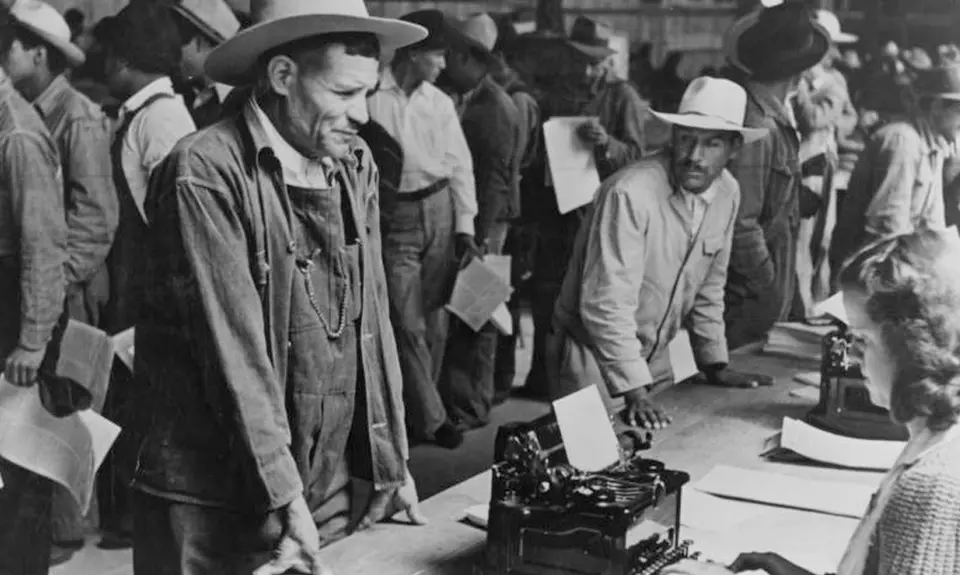“Confirmed Judges, Confirmed Fears” is a blog series documenting the harmful impact of President Trump’s judges on Americans’ rights and liberties. Cases in the series can be found by issue and by judge at this link.
Trump justices Brett Kavanaugh, Neil Gorsuch, and Amy Coney Barrett cast deciding votes in a 6-3 decision to invalidate a 45 year-old California regulation giving unions access to farm property in order to organize farmworkers, the latest in a series of majority rulings that harm unions and workers. The June 2021 decision was in Cedar Point Nursery v Hassid.
Partly as a result of efforts by Cesar Chavez and Dolores Huerta to combat exploitation and abuse of California farmworkers, California passed a law that led to a 1975 regulation allowing union representatives to enter an agricultural employer’s farm or other property for a limited period of time in order to conduct union organizing with workers. The times are limited to a period before and after work and during lunch during for four months of the year. The organizers have access only to areas where workers congregate or eat their lunch and only for “meeting and talking” with employees and “soliciting their support,” and they are prohibited from any “conduct disruptive of the employer’s property or agricultural operations.”
Forty years later, two large California corporate growers filed suit in federal court, claiming that the regulation “effected an unconstitutional per se physical taking” of their property without just compensation under the Constitution, and that the state should be prohibited from enforcing the regulation against them. The lower courts denied the growers’ claims, finding that the state’s action was a regulation and not an appropriation of their property. The Supreme Court agreed to review the case.
In a 6-3 decision in which Trump justices Gorsuch, Kavanaugh, and Barrett provided the deciding votes, the Supreme Court reversed. Chief Justice Roberts’ opinion maintained that the regulation amounted to a “physical taking” of property, rather than a traditional regulation, because it “appropriates” a “right to invade” farm or other agricultural property by union organizers without the owner’s permission. It “appropriates for the enjoyment of third parties,” Roberts wrote, “the owners’ right to exclude” those parties from their property. Roberts maintained that the majority’s holding would not interfere with other situations where an owner’s land is temporarily entered, such as to arrest someone or to conduct health and safety inspections, because such situations can be considered examples of “[i]solated physical invasions” or “longstanding background limitations on property rights” or “requiring owners to cede a right of access as a condition of receiving certain benefits” such as permits or licenses.
Justice Stephen Breyer strongly dissented, joined by Justices Sonia Sotomayor and Elena Kagan. As a matter of property law, Breyer explained, the majority was “wrong” because the regulation “does not appropriate anything.” Instead, he went on, it “gives union organizers the right temporarily” to enter the owners’ land, and thus it “regulates (but does not appropriate) the owners’ right to exclude.” Under prior Court precedent, Breyer continued, this temporary limitation “does not” amount to a “taking” of property under the Constitution. Yet under the majority’s theory, Breyer wrote, “virtually every government authorized” entry on private property would require compensation or be forbidden, so the decision “threatens to make many ordinary forms of regulation unduly complex or impractical.” Roberts’ three exceptions will not work, Breyer suggested, because they impose a “new, complex legal scheme” in which courts will be required to try to answer numerous questions like what intrusions are “isolated” or “longstanding background limitations.”
Significant criticism of the majority’s decision has already mounted. Mark Joseph Stern has written that the ruling threatens to “hobble unions’ ability to help California agricultural workers,” to deal a “crushing blow to organized labor” more generally, and to undermine the “broader legal framework” that permits “all manner” of regulations on private property such as “workplace safety” and “nondiscrimination requirements,” replacing it with “deregulation by judicial fiat” and a “return to the era when federal courts struck down health, safety, and economic policies on the basis of their own political preferences.” Ian Millhiser described it as a “union-busting decision” that “rewrites decades” of property and takings law. The longer term consequences of the Court ruling made possible by the three Trump justices remain to be determined, making it all the more important, as part of our fight for our courts, that the Senate confirm Biden federal judicial nominees who are fair-minded constitutionalists and who will respect the rights of workers and organized labor.
